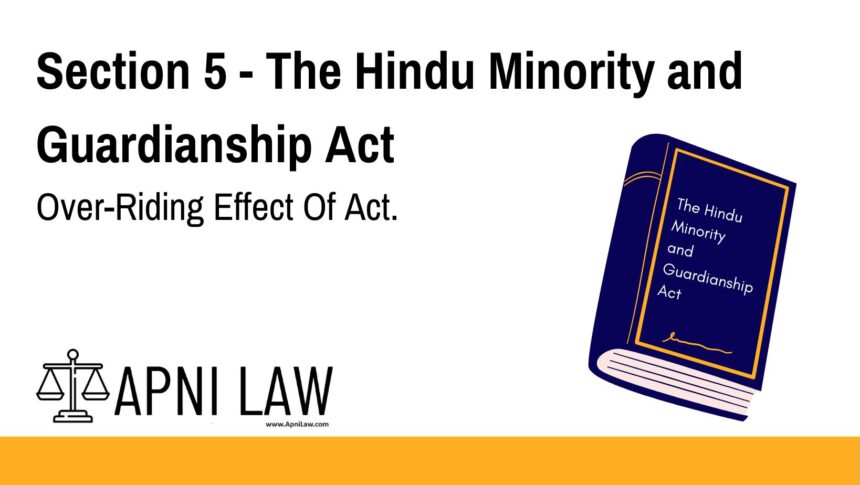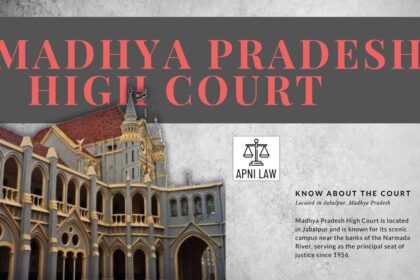Code
Save as otherwise expressly provided in this Act,—
(a) any text, rule or interpretation of Hindu Law or any custom or usage as part of that law in force immediately before the commencement of this Act shall cease to have effect with respect to any matter for which provision is made in this Act.
(b) any other law in force immediately before the commencement of this Act shall cease to have effect in so far as it is inconsistent with any of the provisions contained in this Act.
— Section 5, The Hindu Minority and Guardianship Act, 1956
Explanation
Section 5 gives the Hindu Minority and Guardianship Act, 1956 an overriding effect over all prior Hindu law customs, usages, or rules, and any existing statutes to the extent of inconsistency.
Key Points
🔸 Clause (a):
-
This clause nullifies any pre-existing customs, practices, or interpretations of Hindu law that relate to matters now addressed in this Act.
-
Even deeply rooted customs will no longer be valid if they conflict with this Act.
📌 Example:
If a certain customary practice allowed someone other than a parent to act as a natural guardian, that practice would now be overridden if it conflicts with the provisions under this Act (e.g., Section 6).
🔸 Clause (b):
-
This clause nullifies other laws (not just Hindu personal laws) that were in force before the Act if they are inconsistent with it.
📌 Example:
If the Guardians and Wards Act, 1890 had a conflicting provision on natural guardianship, that provision would cease to apply when read alongside this Act.
Illustration
Suppose before 1956, a customary Hindu practice allowed the paternal uncle to act as a minor’s guardian even when the father was alive. After this Act came into force, such a practice would be invalid, because the Act expressly recognizes the father (and not the uncle) as the natural guardian.
Conclusion
Section 5 is the non-obstante clause of The Hindu Minority and Guardianship Act, ensuring its supremacy over any contrary Hindu customs, usages, interpretations, or other laws that existed before its commencement. It marks a clear shift from personal and customary law toward codified statutory law, reinforcing uniformity and clarity in matters of guardianship among Hindus.








